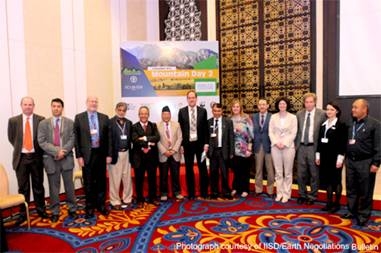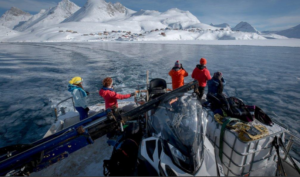India resumes tourist visa for
Chinese citizens after 5 years
India announced that it will open tourist visa applications to Chinese citizens from July 24, 2025. It was the first time in five years since the South Asian country suspended Chinese citizens’ tourist visa applications in February 2020.
The Embassy of India in China announced via its Sina Weibo account that, starting from July 24, 2025, Chinese citizens can apply for a tourist visa to visit India after completing an online application, scheduling an appointment, and personally submitting their passport and other required documents to three Indian visa application centers in Beijing, Shanghai, and Guangzhou in South China’s Guangdong Province.
Responding to the related inquiry, Chinese Foreign Ministry spokesperson Guo Jiakun said that “we take note of this positive move. Easing cross-border travel is widely beneficial. China will maintain communication and consultation with India to further facilitate travel between the two countries.”
Chinese experts said the latest move taken by the India marks a phased milestone in the easing of relations between the two countries, and creates favorable conditions for further strengthening bilateral people-to-people exchanges.
On February 2, 2020, India temporarily suspended its e-visa facility for Chinese travelers and foreigners residing in China amid coronavirus outbreak. – Global Times
Trump to pause anti-immigrant
raids in hotels , restaurants
US President Donald Trump has decided to temporarily suspend raids on farms, hotels and restaurants, according a media report.
The US government has ordered immigration officials to pause raids and arrests on farms, hotels and restaurants, according to a report by the New York Times.
Immigration and Customs Enforcement (ICE) were sent a directive asking that they refrain from heading to such establishments, which also include meatpacking plants and aquaculture.
Department of Homeland Security spokesperson Tricia McLaughlin confirmed the report, saying in a statement that “we will follow the president’s direction and continue to get the worst of the worst criminal illegal aliens off America’s streets.”
The pause in the raids potentially reflects the government’s concerns about the negative impact these operations are having on vital economic sectors, as well as electoral support. The agricultural industry, particularly in states like California, relies almost exclusively on immigrant labour for its day-to-day operations.
The recent protests in Los Angeles, which were triggered by large-scale immigration raids in local communities, have increased pressure on the government. This situation poses a dilemma for the president, who is seeking to maintain the support of key constituencies ahead of the upcoming congressional and midterm elections in 2026.
Since returning to the White House in January, Trump has implemented an unprecedentedly heavy-handed immigration policy. His cabinet officials recently held meetings with ICE leadership, setting a minimum quota of 3,000 arrests per day, a mandate that has resulted in intensified immigration raids nationwide.
The temporary suspension of the agriculture and hospitality raids likely does not represent a fundamental change in Trump’s immigration policy, which remains aggressive in rhetoric.
Secretary of Homeland Security Kristi Noem pledhed that federal authorities are “not going away”, and that people who are in the country illegally, as well as violent protesters, will “face consequences”.
The administration has relied heavily on a crime-focused message, which places significant emphasis on apprehending individuals illegally in the country who are also violent criminals.
That message has been undercut, however, by statistics revealed this week which show the number of people arrested for immigration violations that have never faced other criminal charges or convictions has shot up from 860 in January this year to 7,800 this month.
The number of individuals arrested with criminal charges and convictions also went up, but at a significantly lower rate of 91%. – Euronews , June 14, 2025
Gulf Cooperation Council Tourism
Dubai – As tourism destinations in the Gulf Cooperation Council (GCC) continue to grow, involving local communities in destination development has become increasingly vital for long-term success.
Abu Dhabi’s Tourism Strategy 2030 aims for 39.3 million visitors per year, while Saudi Arabia’s Vision 2030 targets 150 million domestic and international visits, emphasising how tourism is being established as a key element of economic diversification throughout the region.
At Arabian Travel Market (ATM) 2025, industry leaders emphasised that sustainable revitalisation of destinations must align tourism investments with community partnerships, cultural authenticity, and immersive guest experiences to provide lasting value for both residents and visitors.
During the session on “Considerations and Implications of Involving Communities in Destination Revitalisation” on the ATM 2025 Global Stage, experts shared insights into building resilience, enhancing local prosperity, and ensuring tourism growth is both inclusive and enduring.
Arabian Travel Market 2025, held under the theme “Global Travel: Developing Tomorrow’s Tourism Through Enhanced Connectivity”, featured more than 200 speakers across three content stages and welcomes over 55,000 travel professionals from 166 countries.
Messe Berlin India launched
to drive growth of ITB India
Messe Berlin announces the official launch of Messe Berlin India, a newly incorporated subsidiary that underscores the company’s long-term commitment to one of Asia’s fastest-growing markets. Headquartered in Delhi , the new entity will serve as a strategic base for expanding ITB India and launching future projects tailored to the Indian market. With this establishment, Messe Berlin is reinforcing its vision of India as a regional hub for innovation, collaboration, and sustainable business growth within the exhibition and events industry.
“Messe Berlin’s presence in India reflects our strategic intent to strengthen our international reach by being where the growth is. India is a key market for us — vibrant, diverse, and full of opportunities. With Messe Berlin India, we are laying down long-term foundations to build strong partnerships, support local industries, and elevate our global platforms,” said Dr. Mario Tobias, CEO, Messe Berlin.
ITB India, inaugurated in 2023, continues as the flagship event under the new subsidiary. Held annually, ITB India is a three-day B2B travel trade show and convention that connects the global travel and tourism industry with the Indian market. Alongside MICE Show India, Travel Tech India, and the ITB India Conference, ITB India serves as a unique platform to forge new partnerships, strengthen existing ties, and capitalize on the fast-growing potential of the Indian and South Asian travel economies. The show hosts key players from the MICE, Leisure, Corporate Travel, and Travel Technology sectors. The upcoming edition, ITB India 2025, will take place from 2 – 4 September 2025 in Mumbai.
















